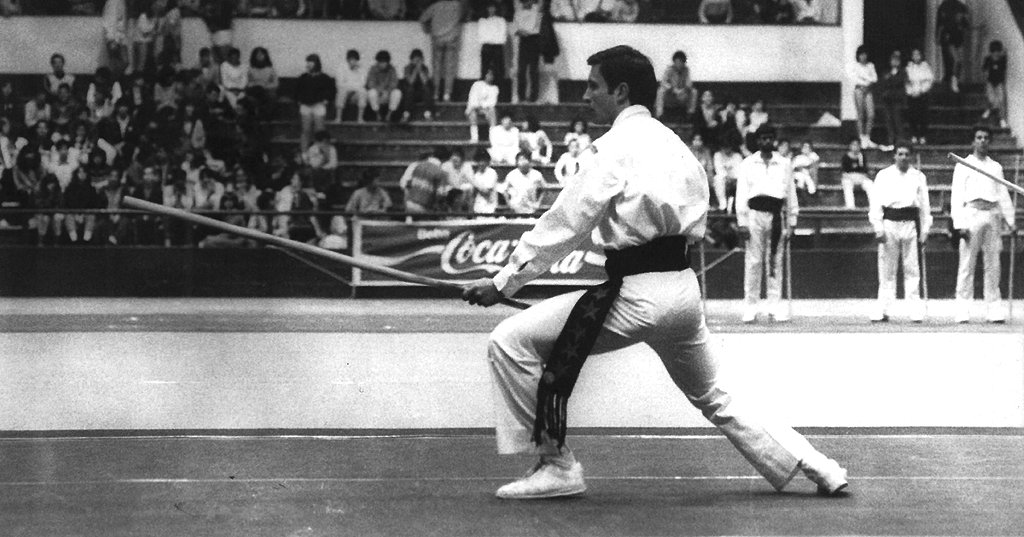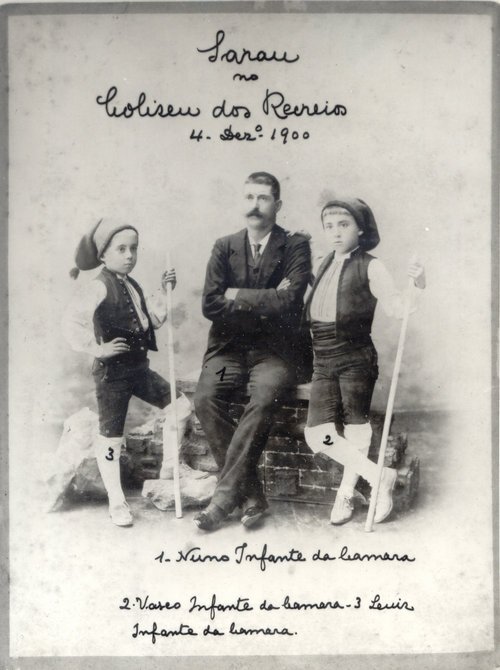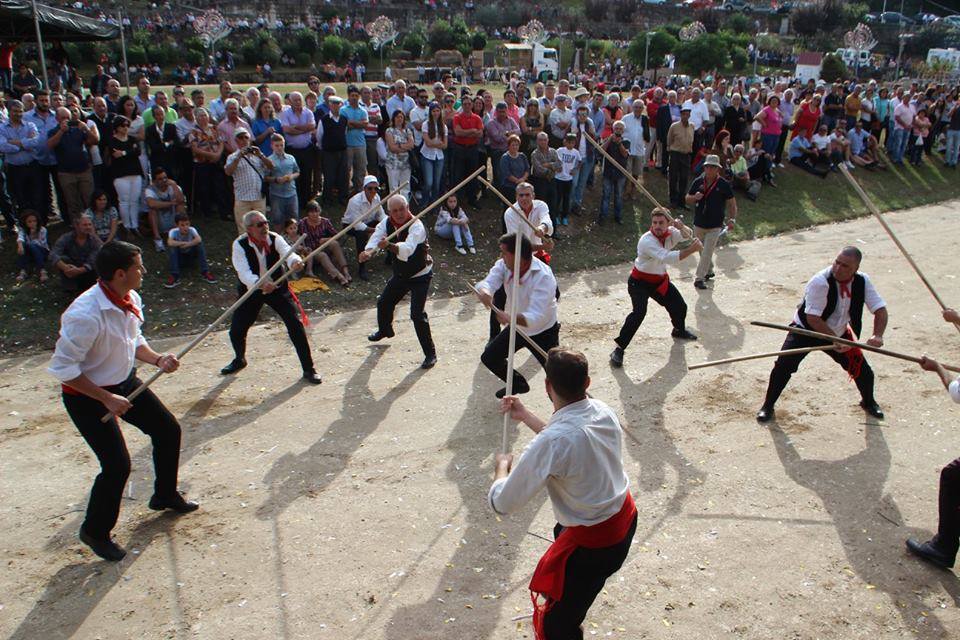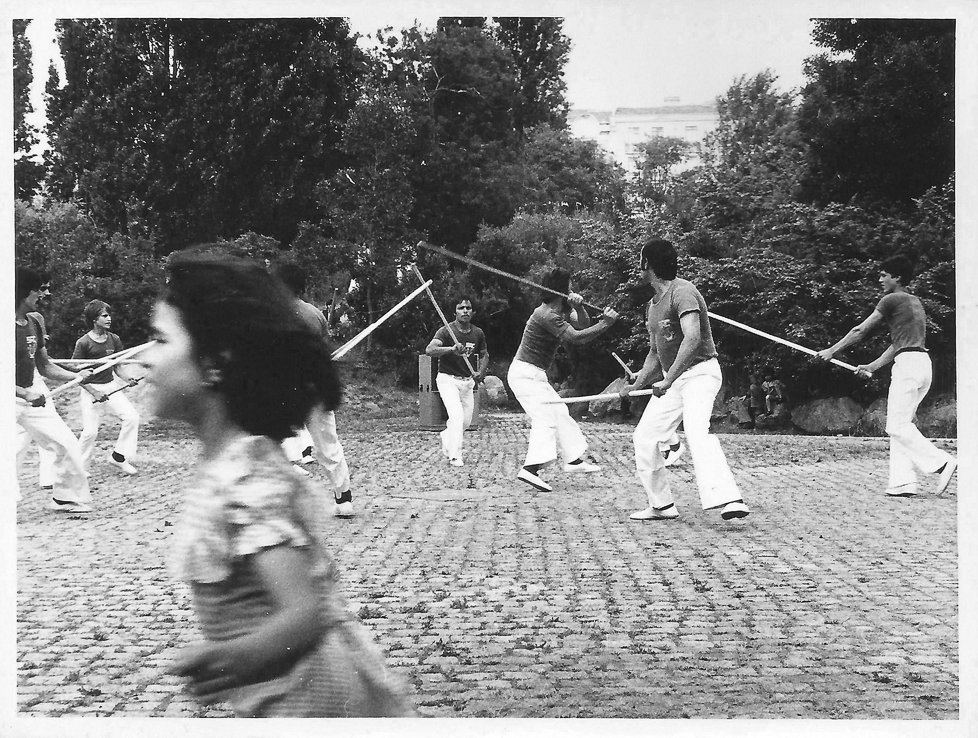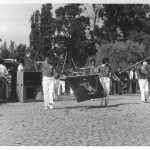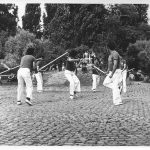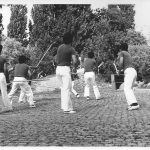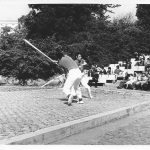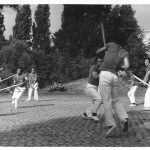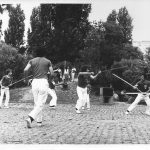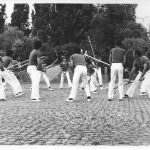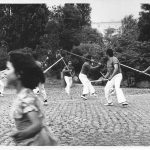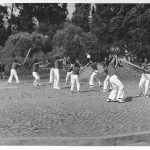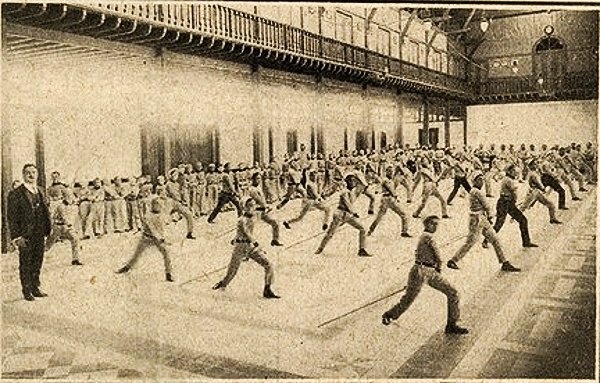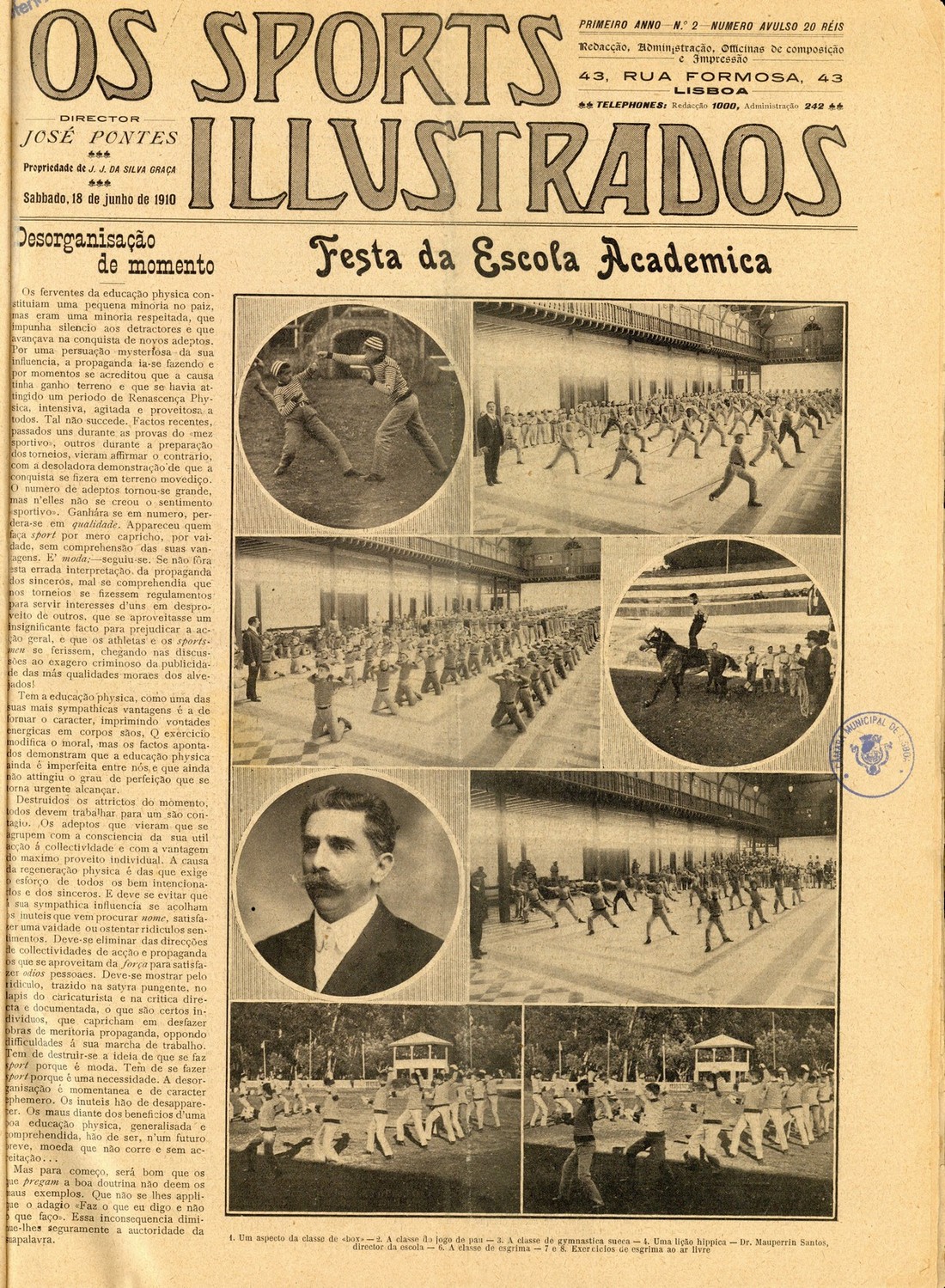Mestre Nuno Russo – Sarau Gala do Ginásio Clube Português.10/5/1985Pavilhão dos Desportos – Lisboa
Gepostet von Mestre Nuno Russo am Montag, 19. Dezember 2016
Fotos
Fotografias
D. Manuel de Bragança e Vasco Infante da Camara
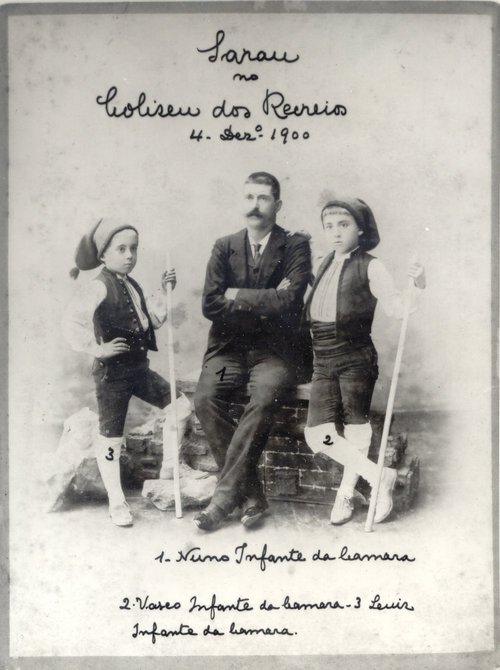
Perante uma selecta assistência, os dois jovens príncipes da casa de Bragança, D. Luís e D. Manuel, presidente de ministros, ministro dos Estrangeiros, ministro da América, ministro de Espanha, bispo, conde de Coimbra, marquês de Soveral, conde de Sabrosa, governador civil de Lisboa, Jayme Arthur da Costa Pinto, etc., etc., desenvolveram os 500 alunos desta escola (Escola Académica) diversos exercícios de educação física, em cujas evoluções se distinguiram agradando por completo, principalmente no ultimo número – Jogo do pau – em que os alunos D. Manuel de Bragança (Lafões) e Vasco Infante da Câmara filho do nosso particular amigo Nuno Infante da Câmara, se mostraram duma perícia e destreza dignas do maior elogio, o primeiro nos ataques, violento, mas correcto, o segundo nos ataques e defesas em que se mostrou inexcedível.
“Tiro e Sport” 31 de Maio de 1907
Jogo do pau in Gothenburg
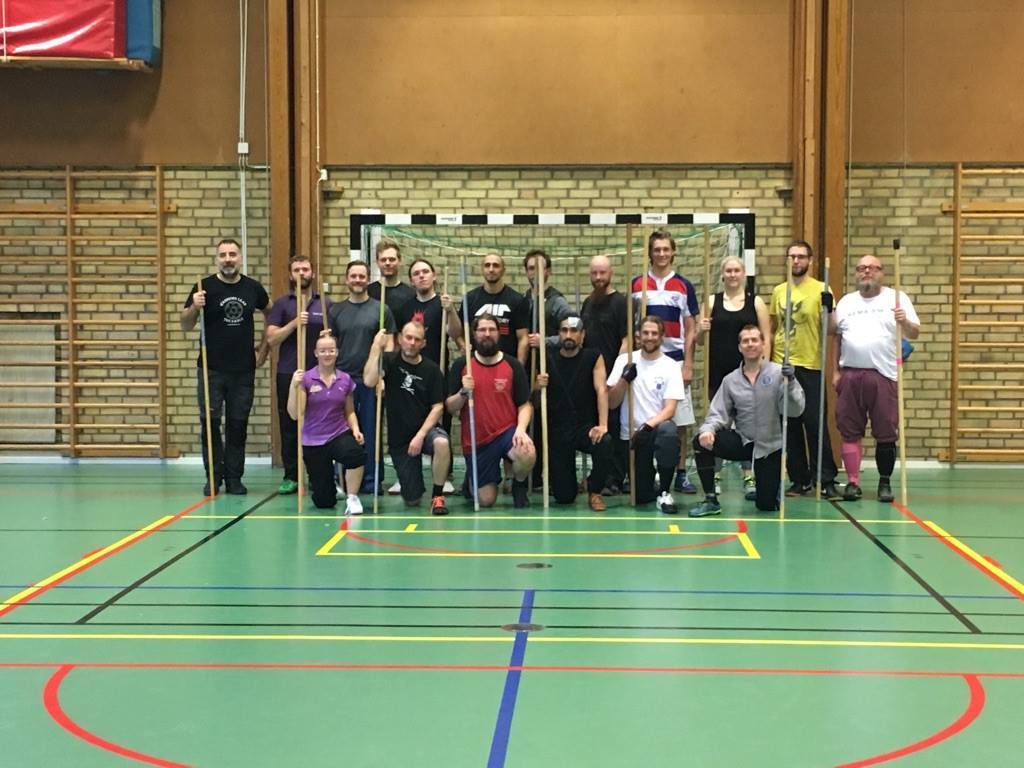
Picture taken on the first gathering for the practices of Jogo do Pau de Cepaes, October 23rd in Gothenburg.
Among us where representatives from several fighting arts and schools and it was the first among many coming gatherings to keep one of the few existing european martial arts traditions alive.
“…But lets work from the thesis that Mestre Avelino said that night on the parkinglot, or maybe how I understood him when I was drunk as fuckshit:
`The duell only happens when the group has failed its main job, namely to work as a group.`
From this we can read that the true martiality in JdP is that every single Jugador knows how to work in a group FIRST and that the duell, the Contra-jogo, is a last resort.
We can also read from this that every Jugador knows how to handle and recognize impossible odds, and the mercilessness in being completely left alone in the role as Batedor. Because the Picadores will not challenge you one by one and risk themselves, they will stress you as group and force you to move so that you get tired and must give up.
And from that we learn that no man will risk his own life if it is possible to drain his enemy of stamina and then capture or kill him with less effort.
It is a lesson that needs to be learned, that you are doomed without your group.
Therefore this is true when we train:
We are friends. But we are not friends.”
-Jogo do Pau de Cepaes, Nicolas Gallardo
Göteborgs Frifäktargille
Halmstad HFS
Malmö HFS
Tuna Cepanense
Escola de jogo do pau do Mestre José Quéo – Fafe, Portugal.
Demonstração do jogo do pau – Domingos Varejão
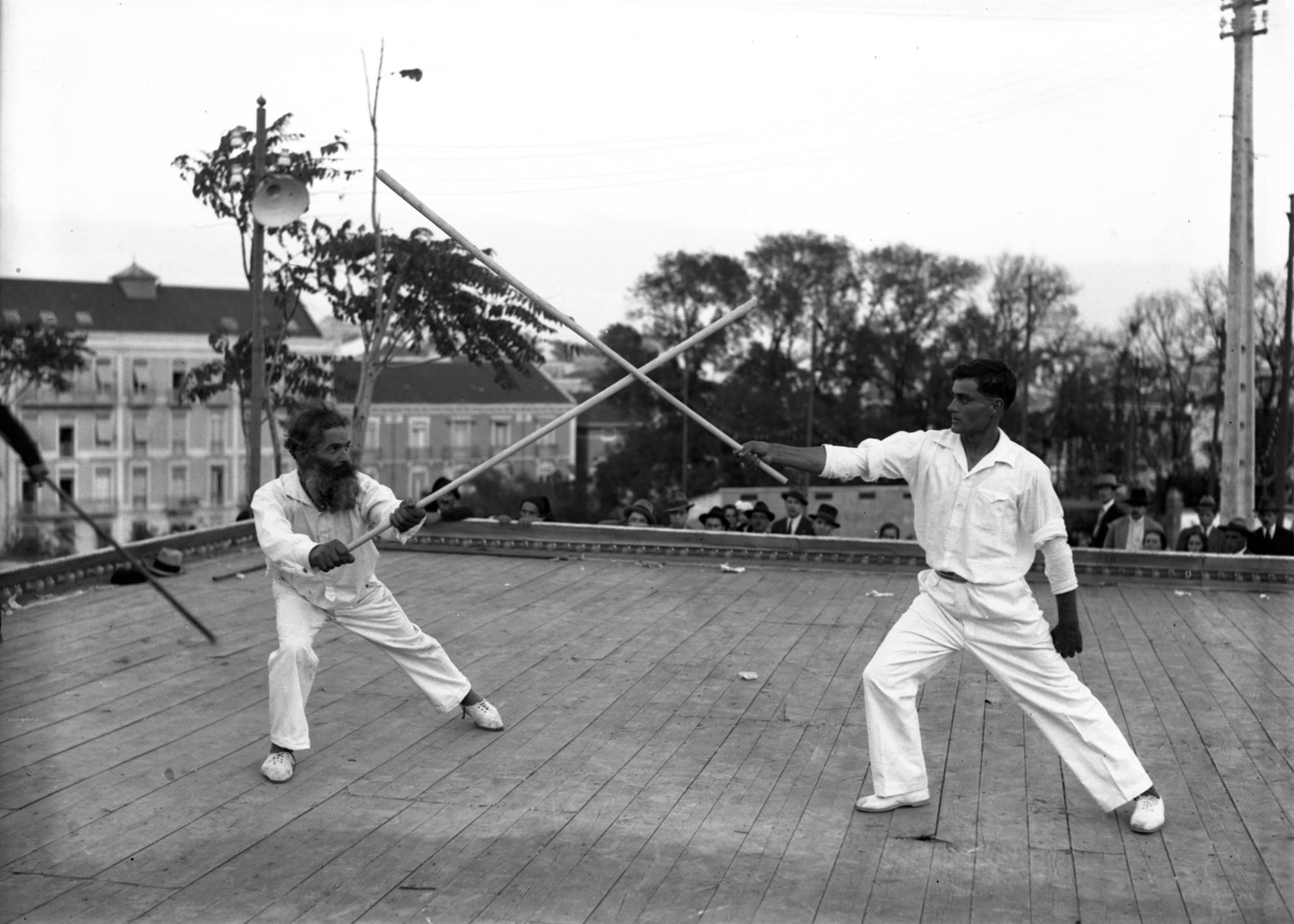
Mestre Domingos Varejão a executar uma guarda lateral.
Arquivo Municipal de Lisboa: Data(s): [entre 192- e 193-]
A la descouverte du baton Portugais

Une technique de lutte au bâton jusqu’à présent totallement inconnue en France, vient de se faire connaître à travers plusieurs démonstrations faites au clube de Henry Plee, Judo International et au gymnase de la cité universitaire.
Cette nouvelle technique, qui est extrêmement efficace à tous degrés d’apprentissage, a été jusqu’ici gardée secrète par les maîtres portugais. Elles serait peut-être originaire de l’Orient. C’est un art qui diffère complètement du bojitsu japonais et de toutes les autres techniques traditionnelles de lutte au bâton. On le pratique avec des bâtons de plusieurs tailles, dont le plus grand mesure 1.50m.
Mestres Pedro Ferreira e Nuno Russo na foto.
“KARATE” nº11 1975
O Sr. António (25) grande jogador de pau – 1978
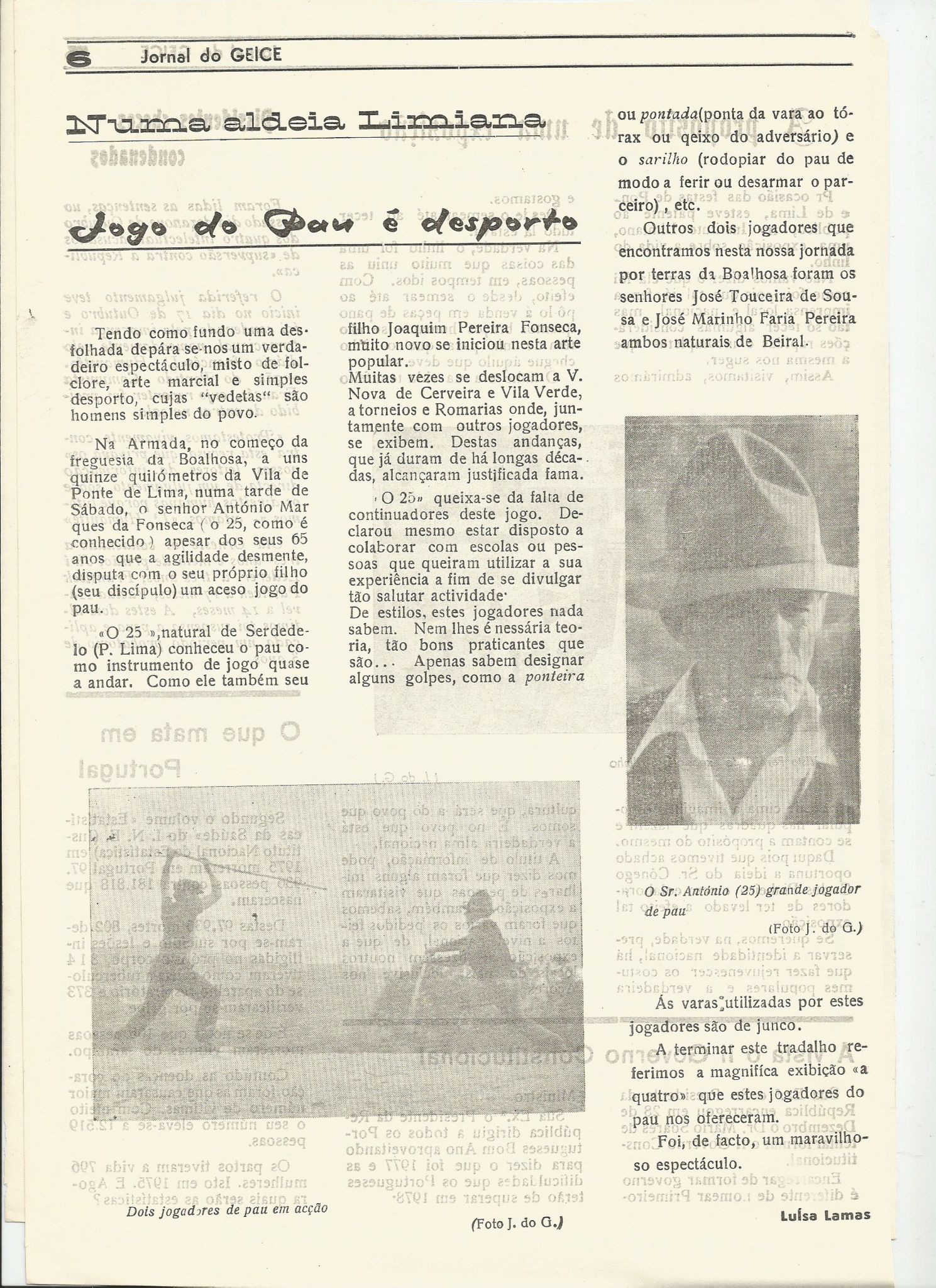
Jornal do GEICE nº3, 4 de Janeiro de 1978
Manuel Medina e Carlos Seabra
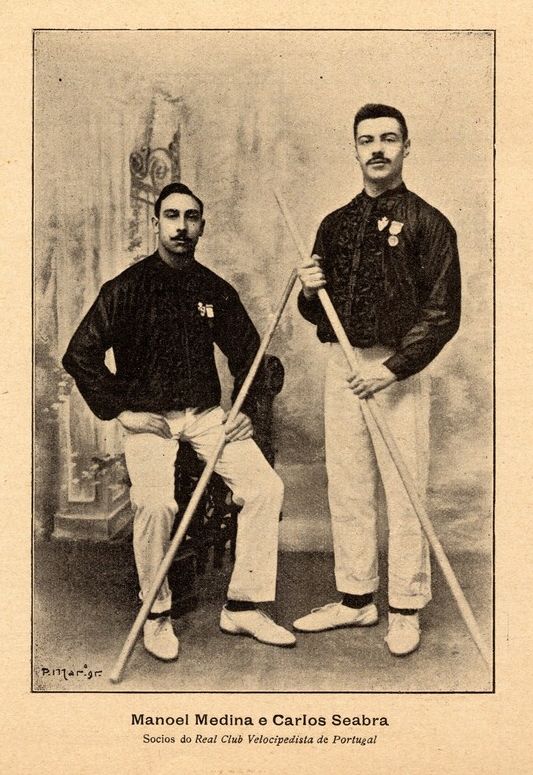
“Ambos intrépidos e distintos ciclistas e jogadores de pau; como sócios do Real Club Velocipedista de Portugal teem como mestre d’esta tão nacional esgrima o sr. Soares da Silva.
O desenvolvimento physico, a agilidade e firmeza que dá o jogo do pau, são das melhores e mais recomendáveis.
Os dois distintos esgrimistas e nossos estimaveis assignantes, foram quem no sarau do R.C.V.P. cm 31 de dezembro passado, executaram, no Colyseu dos Recreios, o numero do jogo de pau. ” – O Tiro Civil Nº 227 – Jan 1902
Arthur dos Santos 1903 – Escola Académica
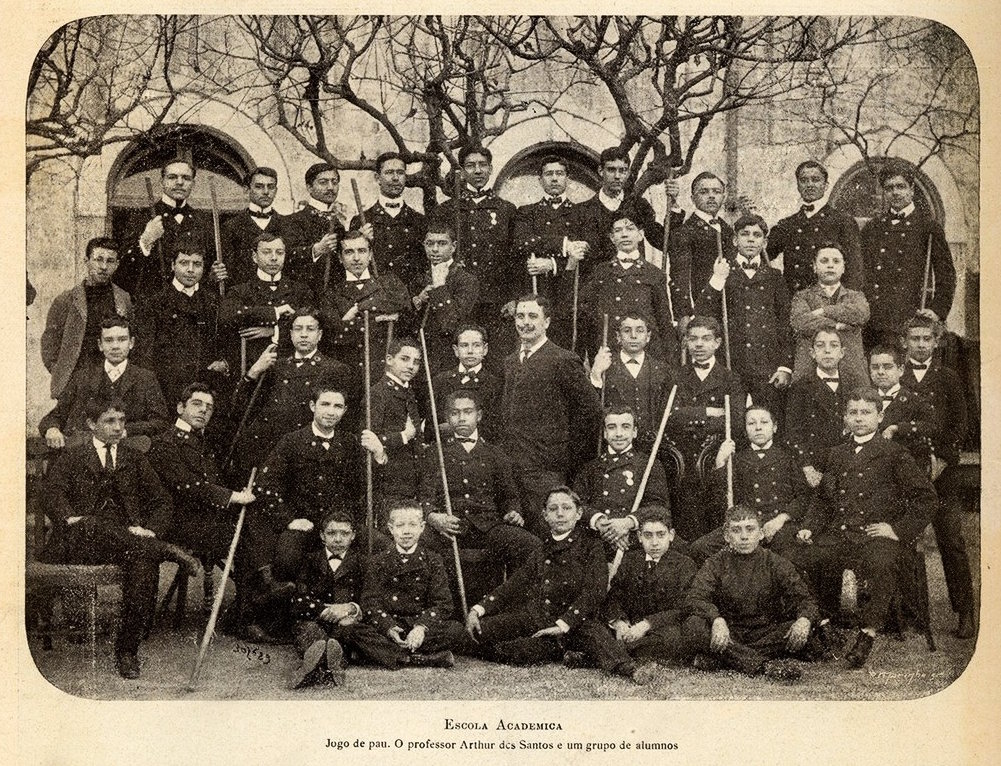
Foto de grupo da classe de jogo do pau da Escola Académica orientada por Artur dos Santos

